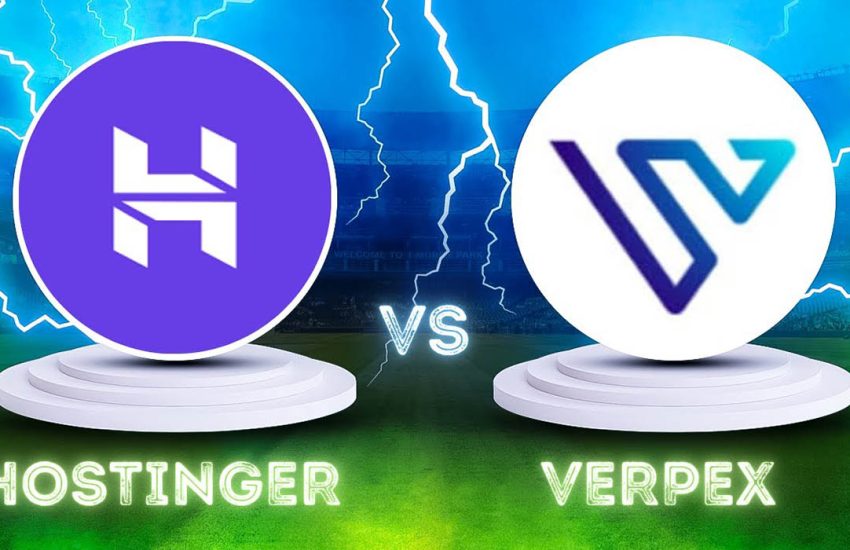Why I Chose Hosting: Let Technology Work Smarter for Me
I remember the first time I came across the word “hosting.” I was filled with doubt. Back then, I was constantly worried about my website crashing, databases failing, and backups disappearing. Whether it was updating system patches late at night or cleaning up endless spam emails, I spent almost all my time dealing with technical problems. I used to think that owning a website or a server meant freedom—but in reality, it meant being tied down by endless technical chores.
Gazelle.com – Buy Smart. Sell Easy.
Trade in your old phone, tablet, or laptop at Gazelle.com and get instant cash offers.
Or shop certified pre-owned devices that look and work like new — all fully tested and guaranteed.
Simple. Secure. Sustainable.
Then one day, I decided to try “hosting.” At first, it was simply because I couldn’t stand the constant downtime anymore. I gave in to a friend’s recommendation to try a cloud hosting platform. To my surprise, that one decision completely changed the way I worked ever since.
I. A Story That Started with Chaos
At that time, my website had just begun to gain some traffic. As the number of visitors increased, the load on the site grew heavier. Every page view triggered countless database queries, and within a few days, my server was on the verge of collapse. Pages loaded painfully slowly, and the bounce rate skyrocketed. It felt like setting up a beautiful booth at a fair, but forgetting to bring electricity—no one could see it shine.
I started researching frantically, trying to manually optimize caching, compress images, and adjust database indexes. But every technical tweak triggered a chain reaction, like a row of dominoes. Change one configuration file, and the site wouldn’t start; adjust the cache settings, and images would stop loading. That constant mental exhaustion made me rethink everything—was there a smarter way to let me focus on creating content instead of constantly fixing systems?
That was when I first encountered the idea of “hosting.”
II. What Exactly Is Hosting?
In simple terms, hosting means handing over the technical management of your digital infrastructure to professional service providers so that you can focus on what truly matters.
For example, if you have a website, you don’t have to buy servers, configure environments, handle traffic surges, or maintain security updates. The hosting company takes care of all that. You just focus on your website’s content or functionality.
There are several types of hosting services, including:
- Web Hosting: Provides the servers, bandwidth, and security needed for websites to run.
- Cloud Hosting: Uses cloud computing resources to automatically scale up or down based on traffic.
- Data Hosting: Securely stores files, photos, videos, and databases.
- Game Server Hosting: Offers stable online servers for smooth gaming experiences.
- App Hosting: Allows applications to run and update automatically in the cloud.
In other words, hosting is like having an “outsourced assistant” in the tech world—but a much smarter one. It doesn’t just handle tasks; it quietly optimizes, monitors, and repairs behind the scenes, keeping everything running smoothly.
III. My First Experience with Hosting

My first hosting experience came through a friend’s recommendation. One evening, I sat in front of my computer watching lines of code automatically execute: deploying the website, configuring SSL certificates, enabling automatic backups. Everything that used to take me a full day was done in just five minutes. That moment, I genuinely felt what it was like to be “taken care of by technology.”
A few days later, I noticed my website loading twice as fast. Tasks that once required manual effort—like clearing caches—were now handled automatically. What impressed me most was the security system: I no longer had to worry about DDoS attacks, brute-force logins, or expired SSL certificates. Everything was automatically detected, protected, and repaired in the background.
That feeling of finally being able to “sleep peacefully” was something I had never experienced before.
IV. The Real Transformation Hosting Brought
Hosting didn’t just improve my site’s performance—it brought a sense of liberation.
- Saving Time
I used to spend at least one to two hours a day on maintenance: clearing caches, making backups, patching bugs, and checking logs. Now, all of that happens automatically. I can dedicate my time to creating content and testing products. - More Stable Performance
My website, which used to crash occasionally, now almost never goes down. Hosting platforms provide real-time monitoring systems that can fix issues before I even notice them. - Enhanced Security
Most hosting services come with multi-layer security: automatic SSL updates, firewalls, malware blocking, and routine backups. Even if something goes wrong, I can restore everything with one click. - More Predictable Costs
Managing your own server may seem cheaper, but hidden costs—like time, learning, and downtime—quickly add up. Hosting makes expenses predictable, stable, and often cheaper in the long run. - A New Way of Working
Before, I was being led by technology; now, I lead it.
Hosting taught me that being smart isn’t about doing everything yourself—it’s about making systems work for you.
V. The Philosophy Behind the Technology
Hosting isn’t just a technical choice—it’s a mindset. It’s about letting professionals do what they do best. When we entrust our websites, data, or applications to hosting platforms, we are actually freeing up our focus.
I once read a quote:
“True freedom is not doing everything yourself, but choosing not to do what drains your energy.”
That resonated deeply with me.
With hosting, I no longer stay up late fixing servers or panic over downtime. I can calmly write reviews, record videos, and engage with my audience. What used to feel like cold, mechanical technology now feels like a gentle, time-saving presence.

VI. Different Types of Hosting and Their Use Cases
To help others find the right fit, I’ve summarized several common hosting types and their ideal use cases:
| Type | Best For | Features |
| Shared Hosting | Personal sites, small blogs | Low cost, easy to manage, limited performance |
| VPS Hosting (Virtual Private Server) | SMEs, medium traffic websites | Balanced performance and flexibility |
| Cloud Hosting | E-commerce, content creators, app developers | Scalable, reliable, high availability |
| Dedicated Hosting | Large projects or enterprises | Full resource control, top performance, higher cost |
| Managed Cloud Hosting | Users seeking convenience and power | All-in-one automation, maintenance, and protection |
I currently use Managed Cloud Hosting, which not only runs my website but also automatically optimizes images, manages SSL certificates, and distributes CDN content. Every detail is handled seamlessly in the background.
VII. Hosting and the Future of Work
I truly believe that hosting will become a fundamental part of digital life. Whether you’re a developer, a content creator, a designer, or just an everyday user, maintaining servers will no longer be your burden.
Hosting isn’t merely about delegating technology—it’s a trend toward automation, AI, and cloud intelligence handling complex work for us.
Imagine a future where even smart homes are “hosted”: systems that automatically monitor energy use, update firmware, and optimize comfort levels. Our personal data, photos, and videos could be safely stored and managed in the cloud, freeing us from technical worries. Life will become not only smarter but also lighter.


